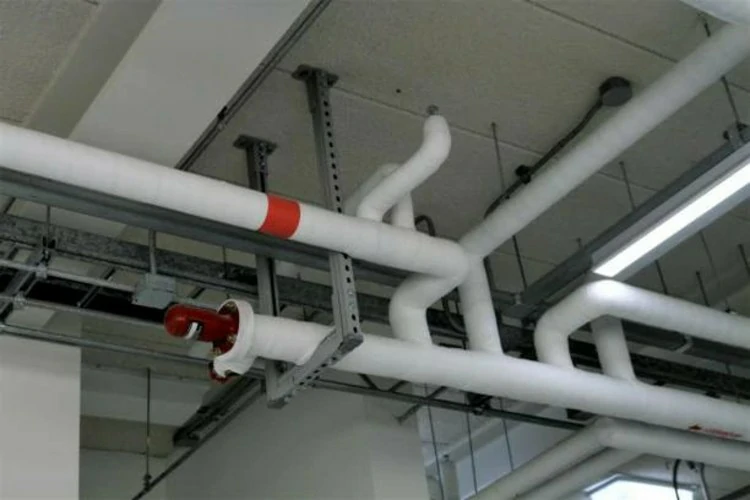Understanding CPVC Tubes
Introduction to CPVC Tubes
CPVC (Chlorinated Polyvinyl Chloride) tubes, known for their exceptional chemical resistance, durability, and ease of installation, find widespread use in various industries. They are preferred for transporting corrosive fluids, hot water, and chemicals due to their unique properties.
Key Features of CPVC Tubes
Chemical Resistance:
CPVC tubes demonstrate outstanding resistance to a wide variety of chemicals, including acids, bases, and salts. This exceptional chemical resistance makes them well-suited for safely transporting corrosive fluids in industrial, commercial, and residential settings.
Temperature Tolerance:
CPVC tube can withstand high temperatures up to 200°F (93°C) and higher, making them ideal for hot water distribution systems, chemical processing, and industrial applications.
Durability:
CPVC tubes boast high durability and resistance to cracking, splitting, and chemical degradation. These qualities ensure their long-term performance and reliability, even in harsh environmental conditions.
Ease of Installation:
CPVC tube are lightweight and easy to install, making them a convenient choice for piping systems. They can be installed using solvent cement or mechanical fittings, which helps reduce labor costs and installation time. This ease of installation is especially advantageous compared to metal piping systems.
Corrosion Resistance of CPVC Tubes
Chemical Compatibility
CPVC tubes are compatible with a wide range of chemicals, including acids, alkalis, salts, and organic solvents, without undergoing degradation or corrosion. This chemical compatibility makes CPVC tube suitable for use in chemical processing plants, laboratories, and industrial facilities where exposure to corrosive substances is common.
Protection Against Corrosive Environments
CPVC tube provide a protective barrier against corrosive environments, preventing the leaching of harmful substances into the transported fluids and maintaining the purity and integrity of the system. Whether used in aggressive chemical applications or harsh industrial environments, CPVC tube offer reliable corrosion resistance and long-term performance.
Resistance to Oxidation and Degradation
CPVC tubes are resistant to oxidation, UV degradation, and environmental stress cracking, ensuring stability and integrity in outdoor applications and exposed environments.
Chemical Stability of CPVC Tubes
Molecular Structure
CPVC tubes originate from polyvinyl chloride (PVC) resin, which undergoes a chlorination process to raise its chlorine content and improve its chemical resistance and temperature tolerance. This chlorination transforms PVC into CPVC, a thermoplastic polymer with enhanced properties and stability.
Inertness to Chemical Reactions
CPVC tube are chemically inert, meaning they do not react with or contaminate the fluids they transport, ensuring the purity and safety of the system. This inert quality makes CPVC tube ideal for applications demanding high-purity water, such as pharmaceutical manufacturing, food processing, and semiconductor fabrication.
Long-Term Performance
CPVC tubes offer long-term performance and reliability in demanding applications, maintaining stable and consistent properties over time. Engineers, contractors, and facility managers can rely on them for aggressive chemical environments, high-temperature applications, or corrosive fluid handling systems, ensuring dependable performance and peace of mind.
Conclusion: Harnessing the Power of CPVC Tubes
CPVC tubes are highly esteemed for their exceptional corrosion resistance and chemical stability, making them ideal for transporting corrosive fluids, hot water, and chemicals across diverse industries. Indeed, the exceptional properties of CPVC tube, such as their chemical resistance, temperature tolerance, durability, and ease of installation, contribute to their reliability and cost-effectiveness. CPVC tube find utility in various industries, including chemical processing plants, water treatment facilities, and plumbing systems. Regardless of the application, CPVC tube consistently deliver superior performance, safety, and peace of mind to users worldwide.
IFAN is a Chinese manufacturer of plastic pipes, fittings and valves with 30 years of experience. If you are interested in IFAN Raccords en cuivre, vannes en cuivre, tuyaux et raccords en plastique, veuillez nous contacter. IFAN offers you a variety of standard pipes to meet your specific needs. Click below to learn more about IFAN’s wide range of affordable and cost-effective valve products and piping system related products.
We will reply your email or fax within 24 hours.
You can call us at any time if there is any question on our production.
For more information,pls visit our webside https://ifanpro.com/
Veuillez envoyer un courrier à l'adresse suivante [email protected]
Whatsapp : + 86 19857948982














Commentaires récents